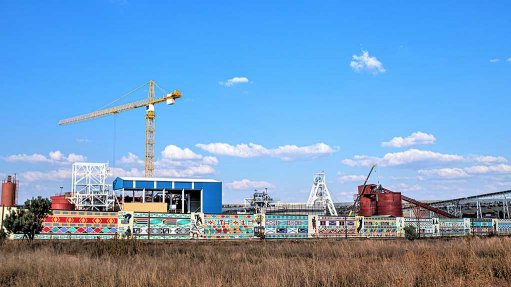
Blyvoor
Following a review of the Blyvoor project in Gauteng, South Africa, and given the new direction of Aim-listed Katoro Gold and the need to focus on a clear pathway to high-value business activities, the company has decided to cease any further investment in this project with immediate effect.
Katoro had previously entered into a binding conditional agreement to form a 50:50 unincorporated joint venture (JV) with Blyvoor Gold Operations and its holding company Target Mine Consulting to exploit potentially viable deposits of gold and any other minerals from six gold tailings dams.
In a business update issued on March 19, Katoro said the cessation of investment was owing to two principal reasons.
The first reason is the difficulty navigating a complex commercial ownership situation with the original project vendors. The second reason is the notable local disturbances in the area of the project, which would make pursuance of the project extremely challenging, even if Katoro were able to resolve the commercial challenges to secure a project interest.
In addition to Blyvoor, Katoro said it would also immediately cease all investment in Namibian Iron Ore.
In September 2022, Katoro entered into a binding conditional agreement to form a 50:50 unincorporated JV with Trans Namibian Mining and Minerals (TNMM). The JV sought to continue the development of TNMM's iron-ore project in the Karas region of Namibia.
As part of the conditionality attached to the transaction, Katoro sought evidence of ownership title in respect of the project. However, this evidence has not been forthcoming to the level needed by the company, Katoro said.
Meanwhile, the Haneti project, which is targeting a large-scale nickel sulphide discovery in Tanzania, continues to move ahead.
Historical exploration to date at the site has included rotary air blast and diamond drilling.
Katoro holds a 65% interest in Haneti, with JV partner Power Metal Resources holding the balance.
Katoro said a technical committee has been established to undertake a detailed review of the entirety of the historical project exploration data and project geology, and to formulate a concise and cost-effective exploration plan to move the project forward.
The committee includes team members from Katoro and Power Metal, along with external specialists.
Katoro is also pursuing €792 000 from Australian mining company Lake Victoria Gold (LVG), following a transaction involving a JV agreement covering the sale of Katoro’s Lake Victoria gold interests to LVG in March 2022.
Katoro said this liability was due to be settled by December 31 last year, but is disputed by LVG. As such Katoro is now taking legal advice in respect of this outstanding amount with a view to taking the necessary recovery action for the amount due.
Katoro said the emphasis now was on pursuing only those interests where the further investment of managerial and technical time, and financial resources, yielded a reasonable prospect of a strong commercial outcome.
“Any investment in existing interests must be weighed against the value available from potential new opportunities. As a result, and . . . to avoid the depletion of working capital on suboptimal activities, a number of definitive steps have now been taken,” Katoro said.
While the company remains highly engaged with regard to the Haneti project, the identification of additional, potentially high-value project opportunities is being prioritised.
“The strong African and global technical capabilities accessible to the company are opening up a wide range of possibilities, to develop existing interests and in the potential acquisition of new opportunities. This includes an ability to stake new ground in strategic locations and, if relevant, to consider acquisitions or earn-ins on existing project interests,” Katoro said.
The company emphasised that its key aim is now is to focus on a limited number of high-impact exploration and development projects, rather than a diverse wide-ranging portfolio, enabling the allocation of working capital into a set of focused business interests.